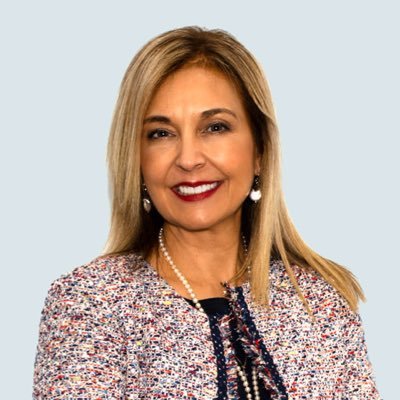Viewpoint: In-person education is still needed, but with more personalization

Like many industries, higher education was forced into virtual spaces at the onset of the COVID-19 pandemic. But while other industries may see a permanent increase in remote work, this pandemic has only made me more confident in the strengths of traditional, in-person instruction. Our real opportunity for evolution lies in providing a more personalized approach to learning, which students need now more than ever.
In March, as COVID-19 cases exponentially increased, we decided to transition our nearly 700 academic courses to a remote delivery format. Thanks to the flexibility and agility of our faculty and staff, students were provided a high-quality academic experience online, and they were very understanding.
A physical academic environment provides benefits that cannot be easily replicated online.
But while this worked on a temporary basis, our students have been clear that they miss in-person, face-to-face instruction. A physical academic environment provides benefits that cannot be easily replicated online. Students are more likely to absorb what the professor is saying, they can more easily participate in collaborative exercises, they benefit from on-campus activities, and they gain meaningful exposure to other students with different backgrounds and cultures from all over the world. We know that these experiences help students develop and discover what their passion in life is, and that is what higher education is all about.
That is why we have worked so diligently to ensure we can return to on-campus learning and living for the fall semester in a safe and secure manner. Marymount University’s Return to Campus Plan focuses on five key areas – reopening safely and sustainably, repopulating campus, monitoring health conditions, containing the possible spread of COVID-19, and following contingency plans in the event of a potential shutdown order. Measures to accomplish those goals include a face covering requirement, consistent sanitizing of all facilities, reconfiguring physical spaces to maintain social distancing, utilizing contact tracing apps, and increasing access to critical health services, testing, and personal protective equipment such as face masks.
Are there aspects of the current higher education model that should be changed? Absolutely – and as leaders in higher education, we must avoid the one-size-fits-all approach in favor of one that is more personalized. For example, at Marymount, we are seeking to build easier on- and off-ramps for students of all ages. Our recently-launched program, “Upskilling for the What’s Next Economy,” encompasses a unique and comprehensive range of modular graduate certificates and degree qualifications that provide students with the technical, management, entrepreneurial, and leadership skills to get them back to work. We also recently launched stackable graduate certificates in areas that include Cybersecurity, Data Science, Digital Health, Digital Transformation, Leadership, Project Management, and Intrapreneurship. These certificates can combine into a master’s degree in Emerging Technology, which gives students the tools they need to seize the opportunities that the market currently provides.
Expanding opportunities available to [students] is a significant way to make higher education more inclusive.
The nature of these offerings is that students can earn certificates slowly, one at a time, or earn multiple certificates all at once – it is up to them and their schedule. This flexibility is especially important for current students who are navigating a tremendous amount of uncertainty due to the COVID-19 pandemic. It also opens doors for nontraditional students who want to start working towards a graduate degree but are unable to commit to a full-time course schedule. Expanding opportunities available to them is a significant way to make higher education more inclusive.
This is just the beginning, because we need to always be finding new ways to increase access and personalization in higher education. It is the future, and I believe we will all see that even more clearly in the aftermath of the COVID-19 pandemic.
Irma Becerra, Ph.D., is the seventh President of Marymount University. She is an internationally recognized expert, speaker, and author in the fields of knowledge management, business intelligence, and entrepreneurship. She is a thought leader, innovative educator, tenured full professor, and community leader. Dr. Becerra’s broad educational background spans the fields of engineering, IT, and business. She may be contacted via email at [email protected].
Board of Trade members are invited to share their views on this blog with editorial support from the Board of Trade staff. Views may or may not represent the official position of the Board of Trade. To contribute to the Board of Trade blog, contact Lindsey Longendyke, Communications Director, at [email protected].
Become a member today
We need your voice at the table to make Greater Washington a place where everyone can succeed



















